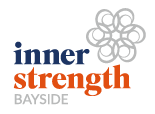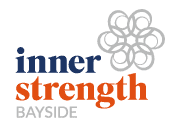Exercise – in balance
 When people think of ‘doing exercise’, we all may have a different perception of what that is. To some, it may mean going for a jog along the seashore, for others it may mean sitting for an hour’s meditation. In this world where everyone is always busy, we are also looking to balance the elements of our lives. So too do we need balance within each particular aspect of our lives. Exercise therefore becomes a multitude of activities, in order to get the right balance in self-maintenance of our good mental and physical health.
When people think of ‘doing exercise’, we all may have a different perception of what that is. To some, it may mean going for a jog along the seashore, for others it may mean sitting for an hour’s meditation. In this world where everyone is always busy, we are also looking to balance the elements of our lives. So too do we need balance within each particular aspect of our lives. Exercise therefore becomes a multitude of activities, in order to get the right balance in self-maintenance of our good mental and physical health.
Cardiorespiratory exercise is important for maintaining the health and fitness of our hearts and lungs, which are also muscles. Doing ‘cardio’ 3-4 times a week for 30-60 minutes will help to strengthen these muscles, as well as the large mobility muscles of our limbs and turnover the oxygen in our bloodstream more effectively (because we will breathe deeply and the heart will pump faster). This could include a walk, jog, run, bike ride, swim or dancing.
Strength training, such as weight training at the gym or Pilates, aims to strengthen our big mover muscles, such as out thighs, as well as the smaller stability muscles that help us balance, walk erect and move our joints smoothly. Without this type of exercise we can suffer instability of joints, back pain and poor postures. It is recommended to participate in strength training exercises 2 or more times a week.
Meditation, yoga and Tai Chi are all great examples of exercise for your mind that can also stimulate your parasympathetic nervous system. By training your mind and body to relax, you can improve your concentration skills, sleep better, and become more alert and mindful during your day.
Recommendations by WHO (World Health Organisation):
- Children (5-17 y.o) – minimum 60 minutes of vigorous physical activity daily. Strength training exercise 3 or more times a week.
- Adults (18-64 y.o) – minimum 150 minutes (up to 300 minutes) moderate physical activity or minimum 75 minutes of vigorous physical activity (or combination) during the week. Strength training exercise 2 or more times a week.
- Adults (over 65 y.o) – as above adults. Add balance retraining 3 or more days a week if mobility poor and prevent falls).
- To gain benefit of cardiorespiratory exercise, all activity should be performed in bouts of at least 10 minutes duration.
Here at InnerStrength of Bayside, our Physiotherapists are experts in developing a personalised rehabilitation program to help you achieve your goals. Our clinic also offers Clinical Pilates, High Intensity (HIIT) Pilates and Mums and Bubs Pilates. The American Heart Association advises that 2 x 30 minutes HIIT is equivalent to achieving 150 minutes of moderate intensity exercise per week!
For more information please call us on 8555 4099 or CLICK HERE to Book Online.
Written by Beth Sackville, Physiotherapist.


